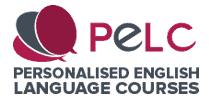Should language teachers give free trial lessons to students?
This time around, I'd like to consider the question - Should language teachers should give free trial lessons to students?
There are several ways language teachers can approach trial lessons. Namely:
- Give free trial lessons to students because it seems like the moral thing to do
- Offer a free consultation to outline teaching methods and techniques, and to find out a student's level
- Give trial lessons at a discounted price
- Charge full price for trial lessons
I’ll now bring in some of my experience to describe how I feel regarding the options above.
Why do language teachers give free trial lessons to students?
I believe that many language teachers offer free trial lessons because it seems to be an ingrained moral tradition in this profession. They may be worried that they can't advertise trial lessons at full price or a discounted price because they're competing with tens of thousands of other teachers who offer unpaid trial lessons. Moreover, if they haven't got any teaching-related degrees, they may have an inferiority complex and imposter syndrome which makes them feel less inclined to charge a student for the first class.
To compound the situation, many language students realise that they can manipulate the oversaturation of the language teacher market. Hence, we language teachers need to stamp down on this pervasive sense of entitlement and frugality among a significant proportion of language learners.
When you think about it, you don’t get many musical instrument tutors offering free music lessons. So why are we language teachers expected to do so?
Here's another thought. Imagine trying to visit psychotherapist after psychotherapist in your area to try and nab free psychotherapy sessions. I don't believe that you'd be able to do that.
What do I do when it comes to the first meeting with a student?
Clearly, I’m totally opposed to offering lengthy free trial lessons as a means to “show off” my methods.
Frankly, I believe that many language learners float around online, skipping from teacher to teacher in the faint hope that they can improve their skills. For free, of course.
I decided a long time ago that I would stop associating myself with such schemes.
However, what I do offer is a free consultation meeting.
To keep my dignity intact, I spend roughly fifteen minutes with potential new recruits explaining how I structure online classes, and why I believe my teaching methods can help them improve their spoken English to achieve a state of oral competence. Indeed, I’ve taught hundreds of intermediate level students since 2006. Therefore, I'm in a decent position to outline what they need to do to achieve an advanced state of spoken competence.
I emphasise the need for students to develop a Word-Phrase Table whereby they can record newly-learned words and phrases, together with personalised sentences which contain these words and collocations.
Finally, I describe the kinds of authentic materials I like to use with students at the intermediate level and above.
All in all, I think that holding these consultation meetings strikes a satisfactory balance between dishing out free trial lessons and charging full price for a meeting.
Solutions to the free trial lesson conundrum
I can see why online language learning platform italki encourages teachers to offer trial lessons at a discounted price.
The question is - how low do you go? Surely, if your normal hourly rate is 15 euros, then offering a trial lesson with a 33% discount (i.e. 10 euros) seems reasonable, doesn’t it?
Italki is a reputable language learning platform. However, as ESL teacher Joanna wrote in her post about the oversaturated market of ESL teaching, it's vital to avoid online teaching platforms which appear to be sketchy. Indeed, Joanna has come across strange stories about teachers who have been accepted onto these platforms. It doesn't take much time for them to receive trial lesson requests from students whose only purpose is to take advantage of free 20-minute classes.
It's worth checking out Hungarian language teacher - Angéla Vagyok's - experience concerning free trial lessons. Essentially, Angéla promotes the idea that students pay for the first lesson, but get the second lesson free should they wish to continue learning. This is the smartest approach to the unpaid trial lesson conundrum I've yet to come across.
If it's your mission to give free trial lessons, you could do it in the categoric, no-nonsense style adopted by English language teacher James Warren. In essence, James allows gives new students fifteen minutes to see whether they find his approach suitable. Check out James's free trial lesson page. His phraseology is admirably authoritative.
Trial lessons on Preply
If I were to consider joining e-learning platform Preply as a tutor, a huge area of concern for me would be the company's 100% satisfaction guarantee policy.
Imagine sitting through a sixty-minute trial lesson, only for the student to take advantage of the platform's refund policy if you were (apparently) not up to scratch.
I'd like to think that most students are honest human beings. However, there are much better ways to go about policy making. Isn't it better to fully vet teachers first before allowing (some) students to take advantage of refund policies?
Another idea would be for Preply to pay teachers for giving inexpensive trial lessons which last 15 or 20 minutes. There are ways to create a satisfying set of working conditions for teachers without hurting students financially.
Language teachers need to polish their websites and profiles
Honestly, I’m shocked by the state of some language teacher profiles on online language learning platforms. Far too many teacher profiles contain the same old clichés and TEFL jargon (e.g. “communicative approach”), which must surely baffle students. Moreover, I don't advise writing “TEFL certified” or "CELTA qualified" because they're rather unimpresive entry-level credentials into the EFL profession.
All online language teachers should invest time writing about their philosophy, techniques and experience related to foreign language learning. Going the extra mile raises the possibility of getting contacted by serious students who aren't solely on the hunt for free trial lessons.



